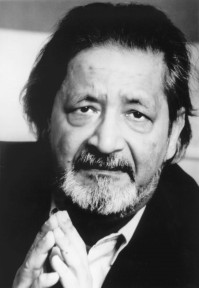VS Naipaul’s comment on women writers (The Nobel Prize-winning author declared that women’s writing is “unequal” to his, during an event at the recent Hay Festival), is scarcely worth responding to. Surely all writers know that we leave it to readers and time to judge our writing? And surely it is in bad taste to declare, like the boxer Muhammad Ali, “I am the best”?
But do we have to respond to such words? I can almost hear the cry from most women writers: “How long, oh Lord and how often do we have to keep responding to such statements? Haven’t the men who make such sexist statements understood by now that a writer is a writer? That a writer’s gender, race, colour etc matters only because it is out of these various identities that a writer writes? And that ultimately what matters is how honestly and how well the writer has written her/his book?”
It seems an insult to women writers to produce a list of their books which are great/better than Mr Naipaul’s. It’s like a new version of Sita’s Agnipariksha– why should women submit to it? Nevertheless I have to think of the novels I have loved and re-read – Emily Bronte’s Wuthering Heights, Jane Austen’s Emma and Pride and Prejudice, George Eliot’s Middlemarch, Elizabeth Gaskell’s North and South, Doris Lessing’s The Golden Notebook, Joyce Carol Oates’ American Appetites, Alice Munro’s stories, Anne Michael’s Fugitive Pieces, Anne Tyler’s The Accidental Tourist, Hilary Mantel’s Wolf Hall – and so many more that I can go on and on. And I have to wonder how anyone who reads books like these can speak disparagingly of women’s writing.
The problem is, I think, that the men who make these comments don’t read women writers at all. If they did, they would have to give up their prejudices. Naipaul, for instance, calling Jane Austen’s a sentimental view of the world is the most hilarious thing I’ve ever heard. Jane Austen, sentimental? Read the dialogue between husband and wife about making amends to the man’s stepmother and sisters in Sense and Sensibility, read the argument between Elizabeth and Charlotte Lucas after Charlotte accepts Mr Collins’ proposal, read … but why go on? Anyone who reads Jane Austen knows that when Jane Austen wrote Sense and Sensibility, she was deliberately running down sentimentality and in Northanger Abbey, she ridiculed the melodramatic.
Clearly Mr Naipaul has either not read her, or he has forgotten. And let’s not forget, Jane Austen was so modest that very few beyond her family knew that she wrote at all. Even when she learnt that the Prince Regent admired her work, it made no difference to her.
There is a Sanskrit saying: Vidya vinayena shobhate. Which means, `Learning is adorned by modesty.’ I wish somebody passes this wisdom on to Sir Vidia.
Shashi Deshpande is a Sahitya Akademi and Padma Shri winning author of 10 novels, four children’s books and countless short stories. She has also penned several essays, now available in a volume entitled Writing from the Margin and Other Essays.







‘why should women be called upon to prove themselves… an Agnipariksha’?
wonderful to read this article by Ms. Shashi Deshpande
Well..women writers ARE sentimental n sensitive n probably dats y a reader chooses smthg to read written by a woman whn the stark Manly realities n pragmatic dark stories fail to interest thm..of course..readers dnt pick the books based on gender preferences..Thank God fr dat
Mr Naipaul’s comment, though funny, is not surprising. A writer who upholds India’s caste system (yes, he did a few years ago and TOI carried the story) will invent ways to think worse, worse, and worse.